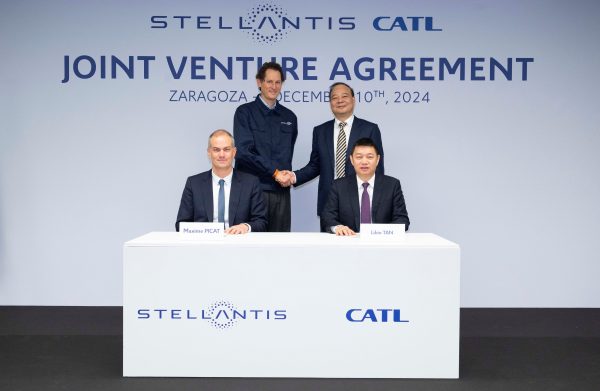
The Bank of Greece proposes simplification of the tax legislation and the tax system, digitization of procedures and payments, but also closer cooperation of the tax authorities of the EU member states for the detection of fraud in cross-border transactions, in order to reduce tax evasion on the VAT front. In Greece, the VAT gap (including tax losses), although in recent years has been declining, has long been one of the largest in the European Union. In 2019 it was almost 2.5 times higher than the EU average (25.8% vs. 10.9%), ie of the 3 euros that had to be collected, almost 1 was lost.
According to the BoG, the large loss of VAT revenue is due to the multiplicity and complexity of tax legislation, with frequent changes and multiple rates that create administrative difficulties and motivate taxpayers for poor compliance while at the same time very high tax rates increase movement in the undeclared economy. “The problem of tax evasion is large and timeless. It is associated with low levels of tax compliance and efficiency of the tax administration. The phenomenon is particularly strong in the field of VAT, although the widespread use of electronic means of payment after 2015 limited it and boosted tax revenues. However, it did not manage to eliminate it “, it is noted in a special section of the BoG report.
Suggestions
To tackle tax evasion, the central bank is proposing to generalize the use of electronic means of payment in all areas of economic activity, to link cash registers with the tax administration and to introduce an automatic tax refund system. According to the central bank, the reduction of tax evasion requires the simplification of tax legislation and the tax system in order to reduce administrative and compliance costs, the digitization of procedures and payments, as well as closer cooperation between the tax authorities of its Member States to facilitate EU detection of cross-border fraud
In particular, in order to reduce this “bleeding” in VAT receipts, the BoG notes the following:
1. The generalization of the use of electronic means of payment in all areas of economic activity, in combination with the completion of the interconnection of cash registers with the tax administration, expands the tax base and contributes to the reduction of the VAT gap.
2. The adoption of the automatic tax refund procedure, the guarantee of transparency during the tax audit and the speed of its processing are the basic preconditions for the improvement of compliance.
3. Limiting the differentiation of tax rates between geographical areas and between categories of goods and services (excluding essentials) on the one hand reduces compliance costs and on the other hand reduces distortions in the consumption of specific goods and services and promotes healthy competition.
4. The digital transformation of the tax administration with the application of new technologies, such as artificial intelligence, big data and blockchain technology, simplifies and speeds up the tax filing process and greatly reduces compliance costs.
5. The application of advanced tax software, real-time reporting systems and data analytics increases the capabilities of the tax administration. A more efficient tax system reduces the time required to meet tax obligations, ie the hours required to prepare and file tax returns and pay the tax, as well as the number of payments within a year, and contributes to tax compliance of citizens. At the same time, it improves the effectiveness of audits while improving the skills of the tax administration’s human resources. In this context, the recently imposed obligation to keep electronic tax books and invoices through the MyDATA application of independent state proceeds authority AADE is included. This digitized service provides the tax administration with the possibility of automatic control and cross-checking of invoices, as it allows the recording of VAT on a daily basis and in real time. In addition, it reduces taxpayer compliance costs by relieving them of bureaucratic procedures such as submitting consolidated statements. The process of completing documents, calculating tax and refund, as well as compliance during the tax audit are the two most important interactions between taxpayers and the tax authority, which determine the degree of efficiency and transparency of the tax system. The complexity of the process, the long waiting time for the tax return, the lack of transparency during the audit and the long delay in extracting the audit result are factors that have a negative impact.
6. Strengthening administrative cooperation in the field of VAT between the tax authorities of the EU Member States helps to identify companies that commit fraud in cross-border transactions. Closer cooperation in the collection and exchange of payment data helps to tackle cross-border retail fraud and the import of goods through e-commerce.
Latest News

Capital Link Forum Highlights Greece’s Economic Resurgence; Honors BoG Gov Stournaras
Capital Link Hellenic Leadership Award recipient, Bank of Greece Gov. Yannis Stournaras, an ex-FinMin, was lauded for his pivotal role during Greece’s economic recovery

Tourist Spending in Greece Up by 14%, Visa Card Analysis Shows
Greece’s capital Athens emerged as the most popular destination, recording a 17% increase in transactions with Visa cards, surpassing even the cosmopolitan island of Mykonos.

Inflation in Greece Unchanged at 2.4% in Nov. 2024
The general consumer price index (CPI) posted a 0.4% decrease in November compared to the previous month

2024 Christmas Holidays: Extended Shop Hours Schedule
The 2024 Christmas Holidays extended shop hours schedule commences on Thursday, December 12 and runs until the end of the year.

ELSTAT: Seasonally Adjusted Unemployment Down in October
The number of employed individuals reached 4,284,694, an increase of 67,723 compared to October 2023 (+1.6%) and 22,002 compared to September 2024 (+0.5%).

Greek PM’s Chief Economic Adviser Resigns
In the post on his Facebook page, Patelis did not disclose the reasons that led him to step down.

“Masdar Invests in the people of Greece and in the vision of TERNA ENERGY”
Four messages from the CEO of Masdar, the Arab renewable energy giant, after its acquisition of 70% of TERNA ENERGY

Lloyd’s List Greek Shipping Awards 2024: Honors for leading companies and personalities in the Greek shipping sector
20 awards presented at the 21st annual Lloyd's List Greek Shipping Awards

Syria’s Bashar al-Assad, His family Granted Asylum by Russia
Reuters also reported that a deal has been struck to ensure the safety of Russian military bases in the war-ravaged country

Greece to Introduce Artificial Intelligence into Its Education System
Currently, Greece is taking its first steps to bring AI into classrooms through the AI4edu program, which is being co-funded by the European Union











![Χειμερινή εξοχική κατοικία: Οι Ελληνες γυρνούν την πλάτη παρά την πτώση των τιμών [γραφήματα]](https://www.ot.gr/wp-content/uploads/2024/12/Capture-19-90x90.jpg)

























![Χειμερινή εξοχική κατοικία: Οι Ελληνες γυρνούν την πλάτη παρά την πτώση των τιμών [γραφήματα]](https://www.ot.gr/wp-content/uploads/2024/12/Capture-19-600x294.jpg)


 Αριθμός Πιστοποίησης Μ.Η.Τ.232433
Αριθμός Πιστοποίησης Μ.Η.Τ.232433